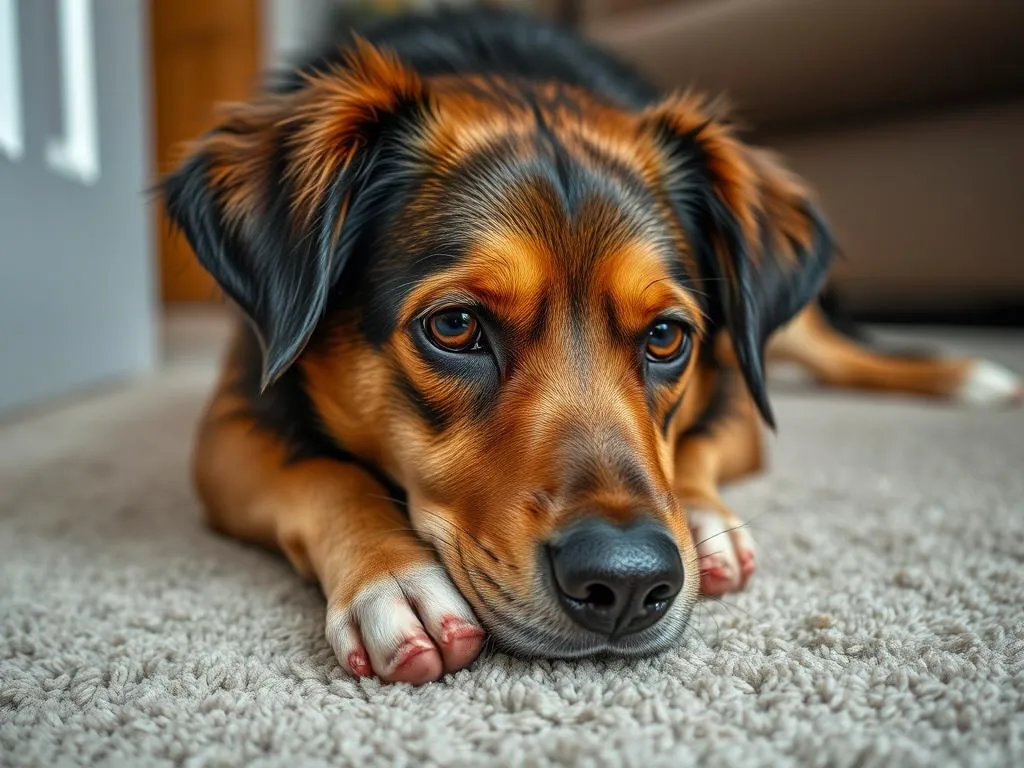
Introduction
Dog behavior can be a complex and fascinating subject, revealing a lot about our furry companions’ instincts, emotions, and needs. Understanding why dogs exhibit certain behaviors is crucial for pet owners to ensure a happy and healthy life for their pets. One behavior that often leaves owners perplexed is why does my dog lick the carpet? This article will explore the various reasons behind this behavior, potential health implications, and effective solutions to manage it.
Understanding Dog Behavior
Overview of Canine Behavior
Dogs are incredibly social and intelligent animals, exhibiting a wide range of behaviors that can be classified as instinctual or learned. Instinctual behaviors are those that dogs inherit from their ancestors, such as foraging and grooming. Learned behaviors, however, are shaped by their environment and upbringing, including training and social interactions.
The environment where a dog grows up plays a significant role in shaping its behavior. Factors such as socialization, training, and even the presence of other pets can influence how a dog reacts to various stimuli.
Common Dog Behaviors
Dogs engage in numerous behaviors that are considered normal. Some of these include:
- Barking: Communication with humans and other animals.
- Chewing: Exploration and stress relief.
- Licking: Grooming or self-soothing behavior.
Each behavior serves a purpose, and recognizing these can help in understanding why your dog may be licking the carpet.
Reasons Why Dogs Lick the Carpet
Natural Instincts
One primary reason for why does my dog lick the carpet is rooted in their natural instincts. Dogs have a history of foraging and cleaning their environment. In the wild, dogs would lick surfaces to find food or clean their living area. This instinct can manifest in domestic settings when dogs lick carpets, especially if they detect appealing scents or crumbs.
Sensory Exploration
Dogs experience the world largely through their senses, particularly smell and taste. Licking is a way for them to explore their environment. When a dog licks the carpet, it may be investigating different scents or textures. This sensory exploration is a natural behavior, often seen in puppies as they learn about their surroundings.
Stress and Anxiety
Stress and anxiety can significantly influence a dog’s behavior, including carpet licking. Licking the carpet can serve as a coping mechanism for dogs experiencing stress or anxiety. If your dog is feeling overwhelmed—due to changes in the environment, loud noises, or separation from their owners—they may resort to licking as a way to self-soothe.
Signs of stress in dogs can include:
- Excessive barking
- Whining or howling
- Restlessness
- Destructive behavior
Recognizing these signs can help you determine if your dog’s carpet licking is a response to stress.
Medical Reasons
Sometimes, persistent carpet licking could indicate underlying health issues. Possible medical reasons include:
- Allergies: Dogs can develop allergies to various substances, including food, pollen, or cleaning products, which may lead to skin irritation and excessive licking.
- Gastrointestinal Problems: Dogs might lick surfaces if they are experiencing nausea or discomfort related to their digestive system.
If your dog’s carpet licking is persistent or accompanied by other concerning symptoms, it’s essential to consult a veterinarian for a proper diagnosis and treatment.
Boredom and Lack of Stimulation
Boredom is another common reason for why does my dog lick the carpet. Dogs require both physical and mental stimulation to stay happy and healthy. If they don’t receive enough exercise or engagement, they may resort to licking as a way to entertain themselves. Lack of stimulation can lead to various unwanted behaviors, including excessive licking, chewing, or digging.
Identifying the Underlying Causes
Observation Techniques
To understand the root cause of your dog’s carpet licking, careful observation is key. Start by documenting when and where the licking occurs. Consider factors such as:
- Time of Day: Does it happen more frequently at certain times?
- Triggers: Are there specific events that seem to precede the behavior, such as when guests arrive or after being left alone?
Behavioral Patterns
Identifying patterns in your dog’s licking behavior can also provide insights. For instance, observe how often and for how long your dog licks the carpet. Is it a fleeting behavior or does it last for extended periods? Noting these patterns can help you discuss your observations with a veterinarian or a dog behaviorist.
Health Assessments
Regular vet check-ups are essential for all dogs, not just to address immediate concerns but also to prevent potential health issues. If carpet licking is excessive, it’s crucial to rule out any medical problems, as some underlying health issues might not be immediately obvious.
Solutions and Management Strategies
Providing Mental and Physical Stimulation
One of the most effective ways to address carpet licking is to ensure your dog has plenty of mental and physical stimulation. Here are some suggestions:
- Interactive Toys: Invest in toys that challenge your dog mentally, such as puzzle feeders or toys that dispense treats.
- Training Exercises: Engage in regular training sessions to reinforce commands and skills, providing mental exercise.
- Physical Activities: Take your dog for walks, runs, or play sessions in the park to expend energy.
Reducing Stress and Anxiety
Creating a calm environment can significantly reduce stress-related behaviors, including carpet licking. Here are some techniques:
- Safe Spaces: Designate a quiet area where your dog can retreat when feeling anxious.
- Calming Music: Play calming music or use white noise to create a soothing atmosphere.
- Anxiety-Reducing Products: Consider using anxiety wraps or pheromone diffusers that can help alleviate stress.
Behavioral Training
Positive reinforcement training can be highly effective in redirecting licking behavior. Here are some training techniques:
- Redirecting: If you catch your dog licking the carpet, redirect their attention to an appropriate toy or activity.
- Reward Good Behavior: When your dog chooses to engage in alternative behaviors, reward them with treats or praise.
Consulting Professionals
If carpet licking persists despite your efforts, it may be time to consult a professional. A certified dog trainer or behaviorist can provide tailored strategies to address the behavior. Additionally, a veterinarian can help rule out any health-related concerns that may be contributing to the licking.
Conclusion
Understanding your dog’s behavior, particularly why they might lick the carpet, is essential for fostering a happy and healthy environment. While carpet licking can stem from numerous reasons—ranging from instinctual behavior and sensory exploration to stress and medical issues—observation and interaction can significantly help in managing it. Encourage your dog’s well-being by providing mental and physical stimulation, reducing stress, and employing positive training techniques. By being attentive to your dog’s needs, you can ensure they lead a fulfilling life.
Frequently Asked Questions (FAQs)
Is carpet licking normal behavior for dogs?
Yes, carpet licking can be considered normal behavior, but excessive licking may indicate underlying issues.
When should I be concerned about my dog’s carpet licking?
If the licking is persistent, excessive, or accompanied by other concerning symptoms, consult a veterinarian.
Can carpet licking lead to health problems?
Yes, if a dog licks excessively, it can lead to skin irritation or other health issues. Regular vet check-ups are essential.
How can I stop my dog from licking the carpet?
Providing mental and physical stimulation, reducing stress, and employing positive reinforcement training can help redirect licking behavior. If issues persist, consult a professional.









